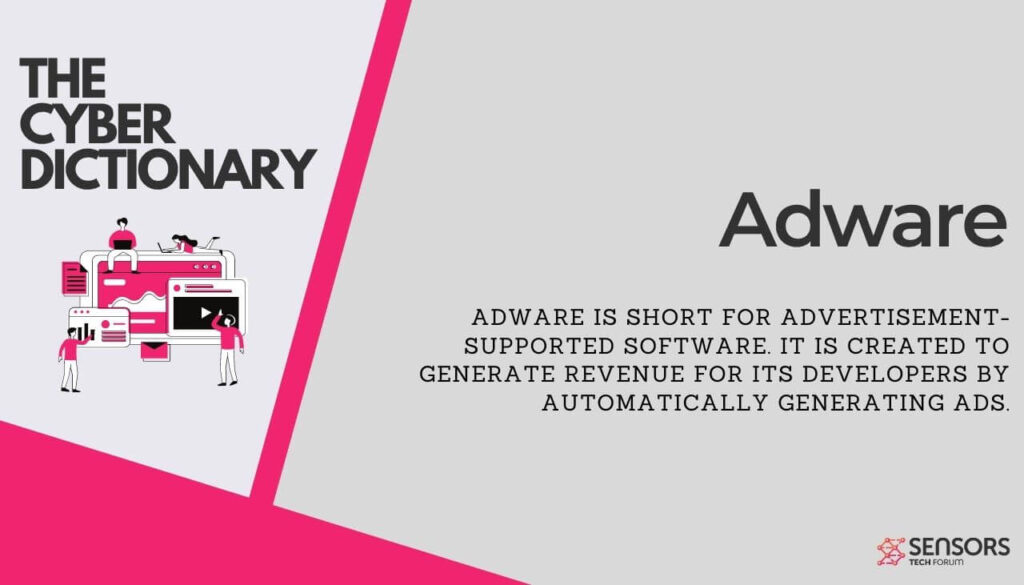What Is Adware?
Adware Short Definition
Adware is short for advertisement-supported software. It is created to generate revenue for its developers by automatically generating ads on users’ web browsers or PC screens. Nowadays, both mobile and computer users are prone to adware.

Adware Extended Definition
Even though adware is not considered malicious, some adware programs can be very deceptive and create opportunities for malicious programs to enter. It is common knowledge that the longer adware runs on your system, the more susceptible it becomes to other online threats. Some adware programs can be associated with trojans and could open a backdoor on your computer.
In most cases, adware comes bundled with software downloaded from the internet, such as freeware or shareware. It is capable of secretly installing itself without your approval or consent.
Note that free software often comes with ads but this practice is not considered illegal. For more information, see software bundling.
If such a program installs malicious ad software without your knowledge, then this action is considered illegal.
Adware is often associated with the following revenue schemes:
- Pay-per-click (PPC), or when adware developers get paid each time you open an ad.
- Pay-per-view (PPV), or when adware developers monetize their app each time an ad is shown to you.
- Pay-per-install (PPI), or when adware developers receive payment each time bundled software is installed on a computer or device.
Also note that adware is generally capable of tracking your search and browsing history to display more relevant advertisements. Once your location and browser history are obtained, then adware developers can make additional income by selling your information to third parties. Because of this behavior, adware is often associated with potentially unwanted applications (PUAs).
For more definitions, check out our Cyber Dictionary.

